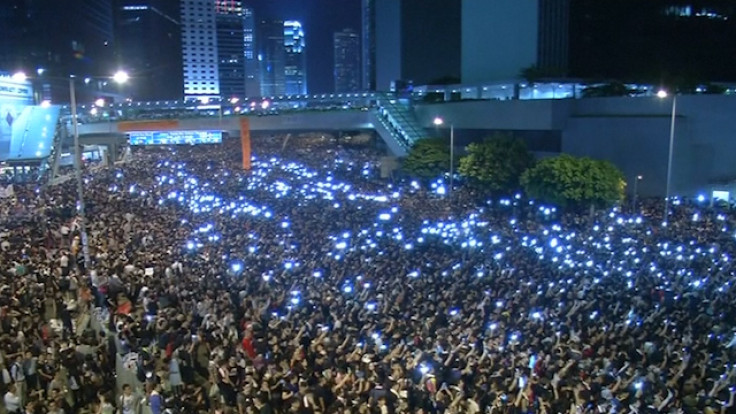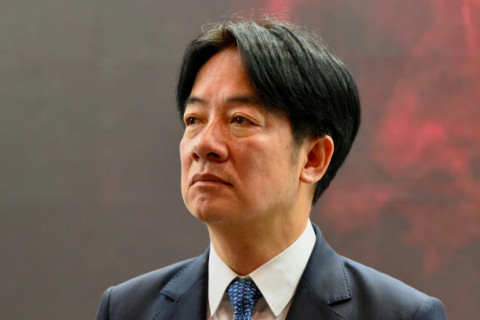Mesh Networks Battle Communications Repression in the Struggle for Democracy

Come writers and critics who prophesise with your pen, and keep your eyes wide, the chance won't come again, and don't speak too soon, for the wheel's still in spin, and there's no tellin' who that it's namin' for the loser now will be later to win...
Democracy activists on the streets of Hong Kong were told this week that they were wasting their time and that they had "almost zero chance" of achieving their goals of free and fair elections in 2017. There is no doubt that the odds seem stacked against this protest movement as they face down the might of Beijing.
Thousands remain on the streets however, even in the face of physical attacks from the police and counter-protest groups. As the days pass and the eyes of the world continue to be drawn to Hong Kong, the options for a resolution narrow. One path may see the Chinese government using its might to make it harder for the protests to continue. They may deploy police or the military to break up the protest.
Another route may see them shutting off communications.
In that event, activists will have to rely much more on mesh network communications. Andrea Peterson in the Washington Post describes a mesh network as "a sort of daisy-chain between devices using Bluetooth or Wi-Fi capabilities, allowing for people in the same area to connect directly with one another or band together to cast a wider net'.
The point being that you replace the need for a centralised telecommunications infrastructure with one structured around nodes – people's phones, tablets, and laptops.
Firechat is the mesh network application du jour, having been downloaded almost half a million times in Hong Kong, but there are others including Commotion, Serval, and the Open Mesh Project
Although still embryonic, these projects are potentially very disruptive for governments, internet regulators, and mobile phone companies. They may also act as free speech enablers. Mesh networks can help preserve privacy and free speech, since it is harder for governments and other bodies to tap into these networks.
Stronger than the regular Internet
Harder to tap in, but not impossible. Many developers - including the creators of Firechat - have recently admitted that these mesh networks are unencrypted and do not offer users high levels of protection from people wanting to snoop on group conversations.
While reading the content of the conversations on mesh networks might be relatively easy, actually shutting them down might be more complicated. As Primavera de Filippi writing on Wired puts it:
"Compared to more centralised network architectures, the only way to shut down a mesh network is to shut down every single node in the network. That's the vital feature, and what makes it stronger in some ways than the regular Internet."
In the wake of Edward Snowden's revelations about the extent of NSA surveillance on private citizen's communications via the internet, a new mesh-network community-based internet seems like a very appealing prospect.
Platform for solidarity
The rise in prominence of Firechat comes about as the question of who governs the Internet becomes more and more critical.
"I find myself in a unique point in history where either we will be able to succeed as a human race, almost, in maintaining the Internet as a platform for solidarity and for economic progress, or, frankly, we will fail.
"We want Internet governance in a distribute[d], polycentric way, as opposed to a centralised, top-down way."
These sentiments appear to gel with what a mesh-network internet might offer.
De Filippi argues that: "It's the fact that [a mesh network] provides a means for people to self-organise into communities and share resources amongst themselves. Mesh networks are operated by the community, for the community. Especially because the internet has become essential to our everyday life.'
All voices will be heard
Mesh networks have a few implications for those fighting for democracy in different parts of the world today.
They represents an opportunity to take back some control over how we communicate with each other. There is limited evidence that the Hong Kong protests are being organised through mesh networks but as the technology evolves and becomes easier to use it may be a great way for cheap, peer-to-peer organising in times of repression.
Like all technology, it is not foolproof. It will certainly break and can be hacked or spied upon by those intent on closing civic and media space. Its use must therefore be complemented by the rudimentary heavy lifting of civic organisation and discipline that are the hallmarks of almost all successful non-violent movements in history.
At a much broader level, future mesh network technologies raise the prospect of a much broader engagement between citizens living in remote, rural communities that suffer from an absence of mobile phone and traditional Internet coverage. This means that all voices, not just urban elites, can be brought into debates about democracy, governance and well, just about anything.
© Copyright IBTimes 2024. All rights reserved.





